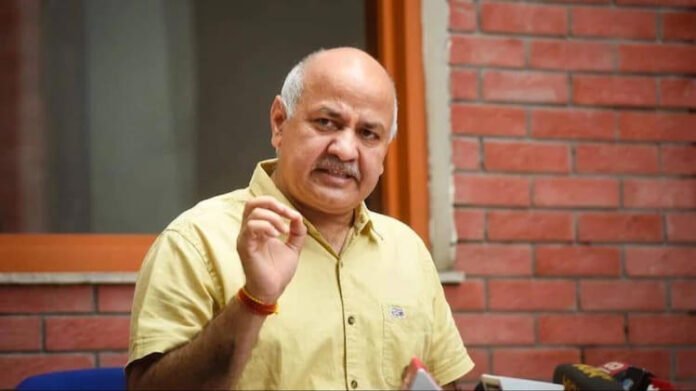The custody of Manish Sisodia, the former Deputy Chief Minister of Delhi, has been extended until May 31 in connection with an excise policy case. The decision comes as a setback to Sisodia, a prominent figure in the Aam Aadmi Party (AAP), and underscores the gravity of the allegations leveled against him.
Sisodia, known for his key role in the AAP government’s policy initiatives and reform efforts, was arrested by the Delhi Police’s Economic Offences Wing (EOW) in connection with an investigation into alleged irregularities in the implementation of the excise policy during his tenure as the Deputy Chief Minister. The case pertains to allegations of corruption and favoritism in the awarding of contracts for the sale of liquor in the national capital.
The decision to extend Sisodia’s custody until May 31 reflects the seriousness of the charges against him and the need for further interrogation and investigation. The Delhi Police’s EOW, tasked with probing economic offenses and financial crimes, has cited the complexity of the case and the volume of evidence gathered during its investigation as grounds for seeking an extension of Sisodia’s custody.
The extension of Sisodia’s custody has sent shockwaves through the political establishment, with AAP leaders decrying it as a politically motivated move aimed at tarnishing Sisodia’s reputation and undermining the party’s credibility. AAP spokespersons have accused the central government of using state institutions to target political opponents and stifle dissent, describing Sisodia’s arrest as a blatant attempt to intimidate and silence dissenting voices.
Sisodia, for his part, has maintained his innocence and vowed to cooperate fully with the investigation. In a statement issued from custody, he reiterated his commitment to transparency and accountability and expressed confidence in the judicial process to vindicate him. He accused the Delhi Police of acting at the behest of the ruling Bharatiya Janata Party (BJP) and claimed that the charges against him were politically motivated.
The extension of Sisodia’s custody has thrown AAP into turmoil, with party leaders scrambling to mount a defense and rally support for their beleaguered colleague. AAP convenor Arvind Kejriwal, the Chief Minister of Delhi, has denounced Sisodia’s arrest as a witch hunt and called for solidarity among opposition parties to resist what he described as the BJP’s authoritarian tactics.
The case against Sisodia has also reignited debates about corruption and governance in Delhi, with opposition parties seizing on the opportunity to attack AAP’s record on transparency and accountability. The BJP, in particular, has sought to capitalize on Sisodia’s arrest to score political points and undermine AAP’s credibility ahead of crucial state elections.
However, AAP remains undeterred, vowing to fight tooth and nail to clear Sisodia’s name and expose what it sees as the BJP’s vendetta politics. Party leaders have pledged to mount a vigorous defense in court and mobilize public opinion against what they perceive as an assault on democratic values and institutions.
The extension of Sisodia’s custody has also raised questions about the efficacy of India’s legal system and the fairness of its judicial processes. Critics have pointed to the prolonged detention of political leaders like Sisodia without conclusive evidence or a speedy trial as evidence of systemic flaws and political interference in the administration of justice.
As the case against Sisodia unfolds, the spotlight will remain firmly on him and AAP, with both sides gearing up for a protracted legal battle and a high-stakes political showdown. The outcome of the case is likely to have far-reaching implications for Delhi’s political landscape and could shape the trajectory of AAP’s future electoral prospects.
For now, Sisodia’s fate hangs in the balance, as he grapples with the weight of the charges against him and the uncertainty of his legal battle. As he awaits his day in court, the former Deputy Chief Minister of Delhi finds himself at the center of a political storm, with the eyes of the nation fixed firmly on him and his party.

